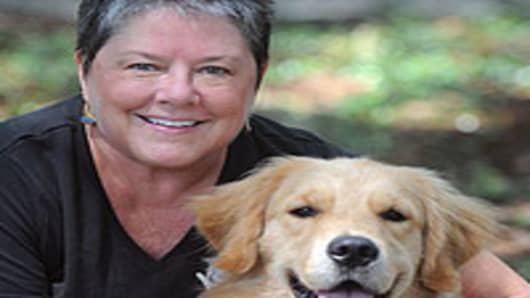Take Ken Hoeg. Until mid-June, he led a team of developers at the major payroll company Automatic Data Processing . After 14 years with the company, his job was eliminated in a reorganization.
Since 1988, however, Hoeg had been a civilian volunteer with the U.S. Coast Guard Auxiliary, working as an aircraft pilot, whose duties included aerial photography.
As a result he founded AirEyes, through he offers his photo services in four states.
"There was a lot of soul-searching, and thought about what motivates me and makes me happy," Hoeg said. "There was, of course, concern about leaving the perceived safety of working for a large corporation. Much of that perception is a mirage. In a large corporation one gives up much of his self-determination. My advice to others would be to find something you're passionate about, study the market and the competition and don't give up."
As is the case with many people who lose their jobs these days Sherri Cappabianca saw it coming and began to prepare her second act.
When she was laid off as a software engineer for Siemens
in Orlando last March, she jumped into her own business as a “canine wellness practitioner,” doing massage, acupressure, even aromatherapy, for dogs.
"I actually started it part-time prior to getting laid off knowing that the layoff would eventually come," she says.
Since starting up Rocky's Retreat: Canine Wellness & Healing Therapies, Cappabianca says she’s learned a variety of skills, from sales to marketing to public speaking.
Most importantly, she has learned: “In following your passion, anything and everything is possible. Being a former engineer, I've stepped completely out of my comfort zone by starting this business,” she admitted. “But it's been one of the best things that's ever happened to me. I don't ever want to go back to software, I love working for myself and helping improve the quality of life for people and their dogs.”
Cynthia Jermin was downsized from her post at a multinational investment bank in June.
- Slideshow: Most Vulnerable Jobs
A working mom, her childrearing routine suggested a product. With a son in daycare, she searched the market unsuccessfully for suitable "nap time" materials. Now her company, Royal Nap Mat, sells an all-in-one boutique bag carrying a quilted mat, pillow and fleece blanket.
"Life is about moving forward and responding to what comes your way," says Jermin. "If the door closes, perhaps it is your opportunity to finally live the life you really want to. For me it was entrepreneurship. Wall Street firms were reducing the staffs, therefore, it was wise for me to have a plan B."
Some laid-off entrepreneurs have gone the franchise route, taking their severance money to open a new branch of an established business.
In November 2008, Joseph Gliottone was let go as senior vice president at Boston-based ad agency Arnold Worldwide.
"After six and a half years at Arnold and more than 30 in the industry, I felt it was time to do something completely new and different," says Gliottone
He launched DoodyCalls, a pet-waste removal business. With help from the parent company, Gliotonne has carved out a business scooping poop from residential properties and selling, installing and servicing pet waste stations for homeowners' associations and apartment complexes.
"Did I ever envision myself getting into this business? No," he says. "But the pets-services industry is still booming and, much unlike advertising, this is a business that will never be dictated by technology. While it certainly is a ‘slightly different’ business venture to pursue, I am proud to say that I'm number one in the number-two business."
Ric(cq) Franzi bought a franchise for Renaissance Executive Forums in Orange County, where he had been general manager for a division of the troubled Delphi auto parts company.
"I knew my job at Delphi was going to disappear," he explained. "At 50, I was leery to jump onto another corporate treadmill. I'd once dreamed of owning my own business, but never taken action. Was this the nudge I needed?"
Franzi had been an enthusiastic member of a monthly businessmen's peer group, and thought he could make a difference in how executives interacted with each other and made decisions.
He partnered with an executive coach and bought a franchise, now the fastest-growing one in the Renaissance system. Members pay dearly to attend his monthly, half-day, round table sessions. His clients range in size from bosses of small- to medium-sized businesses to CEOs of companies with revenue in excess of $500 million dollars.
"Thank God I let Delphi go" Franzi says. "It allowed me to finally let go of my fears and find my true passion and purpose in life."



